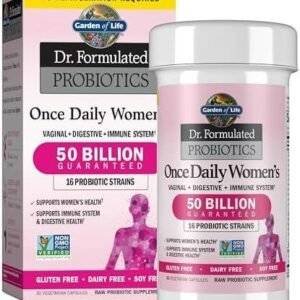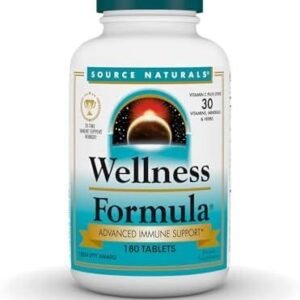In a world increasingly attuned to the rhythms of health and wellness, the conversation around nutrition has evolved from mere calorie counting to a more nuanced exploration of how what we eat profoundly impacts our bodily systems. At the heart of this discourse lies an often-overlooked powerhouse: our gut. Nestled within this sophisticated ecosystem of bacteria, enzymes, and neurotransmitters, the gut serves as a vital gateway to our overall well-being. Current research underscores the intricate connection between gut health and nutrition, revealing that the foods we consume are not just fuel but also molecular messengers that influence everything from our mood and immune response to our risk for chronic diseases. In this article, we will delve into the science behind gut health, illuminating how nutritional choices can unlock a new dimension of wellness—one that embraces the profound interplay between what we eat and how our bodies and minds thrive. Join us on this enlightening journey to discover the hidden truths that can transform our understanding of health, with the gut as our guide.
Table of Contents
- Understanding the Gut Microbiome: The Foundation of Wellness
- The Role of Nutrients in Shaping Gut Health
- Practical Strategies for Nourishing Your Gut Through Diet
- The Connection Between Gut Health and Mental Wellbeing
- Future Outlook
Understanding the Gut Microbiome: The Foundation of Wellness
The gut microbiome is a complex ecosystem of trillions of microorganisms residing in our digestive tracts. These microbes play an integral role in digesting food, synthesizing vitamins, and regulating immune function. A balanced microbiome not only aids in nutrient absorption but also supports mental health and reduces inflammation within the body. Key factors that influence gut health include:
- Diet: Fiber-rich foods, fermented products, and a diverse array of fruits and vegetables promote microbial diversity.
- Lifestyle: Regular exercise and adequate sleep contribute positively to the microbiome.
- Stress Management: Chronic stress can alter gut composition, highlighting the connection between mental well-being and gut health.
Understanding the gut’s role in overall wellness paves the way for targeted nutritional strategies. For example, a diet rich in prebiotics and probiotics fosters a healthy microbiome. Moreover, certain foods can be detrimental, leading to dysbiosis and associated health problems. The following table outlines both beneficial and harmful food choices:
| Beneficial Foods | Harmful Foods |
|---|---|
| Yogurt and kefir | Sugary drinks |
| Garlic and onions | Processed snacks |
| Whole grains | High-fat fast food |
The Role of Nutrients in Shaping Gut Health
The intricate relationship between our food choices and gut health cannot be overstated. Nutrients serve as the building blocks of our body, influencing everything from digestion to immunity. Certain vitamins and minerals are essential for maintaining the integrity of the gut lining, while others actively promote the growth of beneficial gut bacteria. A well-balanced diet is critical for fostering a diverse microbiome, which is known to support various bodily functions, including mood regulation and metabolism. Key nutrients to consider include:
- Fiber: Promotes regularity and feeds healthy gut bacteria.
- Omega-3 Fatty Acids: Reduce inflammation and support gut barrier function.
- Probiotics: Introduce beneficial microbes that enhance digestion and immune response.
- Vitamins A, C, and D: Protect and heal the gut lining while supporting immune health.
Incorporating a wide variety of these nutrients into your diet can create a thriving intestinal ecosystem. For example, consuming fermented foods rich in probiotics alongside prebiotic-rich vegetables can yield compounding benefits for gut health. Additionally, micronutrient deficiencies can manifest not only through gastrointestinal distress but also through systemic issues such as fatigue and immune dysfunction. A clear connection exists between nutrient intake and our gut’s ability to function optimally, making it vital to prioritize our diets. Understanding which foods deliver the necessary nutrients can empower individuals to make informed dietary choices.
| Nutrient | Sources | Benefit to Gut Health |
|---|---|---|
| Fiber | Whole grains, fruits, vegetables | Feeds gut bacteria and aids digestion |
| Omega-3s | Fatty fish, flaxseeds, walnuts | Reduces inflammation, strengthens gut barrier |
| Probiotics | Yogurt, kefir, sauerkraut | Supports healthy microbial balance |
| Vitamins A, C, D | Leafy greens, citrus, fish | Maintains gut lining integrity and immune function |
Practical Strategies for Nourishing Your Gut Through Diet
Nourishing your gut begins with an emphasis on whole, unprocessed foods that are as close to their natural state as possible. Incorporate a variety of fruits and vegetables into your daily meals; they are packed with essential vitamins, minerals, and fiber that feed beneficial gut bacteria. Some excellent choices include:
- Leafy Greens – Spinach, kale, and Swiss chard are fiber-rich.
- Colorful Vegetables – Carrots, bell peppers, and sweet potatoes provide antioxidants.
- Fruits – Bananas, apples, and berries add diversity to your diet.
In addition, consider incorporating fermented foods, which are rich in probiotics that can enhance gut health. Foods such as yogurt, sauerkraut, kimchi, and miso can introduce beneficial bacteria into your system. To help you get started, here’s a simple table showcasing some of these gut-friendly foods alongside their key benefits:
| Food | Benefits |
|---|---|
| Yogurt | Contains live cultures that promote digestion. |
| Sauerkraut | Rich in fiber and antioxidants, supports gut flora. |
| Kimchi | Boosts metabolism and provides vitamins. |
| Miso | Source of beneficial microbes and nutrients. |
The Connection Between Gut Health and Mental Wellbeing
The gut-brain connection is a fascinating realm where physiological and psychological health intertwines. Recent studies reveal that the gut microbiome—the universe of bacteria residing in our intestines—plays a pivotal role in shaping our mood and cognitive function. The gut produces a significant amount of neurotransmitters, including serotonin, often referred to as the “happy hormone.” This intricate relationship is influenced by a variety of factors, including dietary choices, stress levels, and lifestyle habits. A healthy gut can lead to improved mental clarity and emotional stability, while an imbalanced microbiome may contribute to anxiety and depression.
To enhance both gut health and mental wellbeing, consider incorporating the following elements into your daily regimen:
- Probiotic-rich foods: Yogurt, kimchi, and sauerkraut can foster a thriving gut microbiome.
- High-fiber diets: Whole grains, fruits, and vegetables nurture beneficial gut bacteria.
- Hydration: Drinking adequate water supports digestive health and promotes nutrient absorption.
- Avoiding processed foods: Minimize refined sugars and unhealthy fats that can disrupt gut health.
Additionally, incorporating mindfulness practices such as yoga and meditation can soothe the gut-brain axis by reducing stress, which is notorious for wreaking havoc on digestive health. Research is rapidly expanding on this connection, indicating that prioritizing gut wellness is just as essential as maintaining a balanced diet. The benefits transcend mere physical health, steering us towards a holistic approach where emotional and mental states are nurtured through the careful cultivation of our inner ecosystem.
Future Outlook
As we navigate the intricate landscape of wellness, it becomes increasingly clear that the gut is not just a passageway for our food, but the very heart of our health. The relationship between gut health and nutrition is a symbiotic dance, one that requires mindful attention and understanding. By unlocking the secrets of our digestive system, we not only enhance our physical well-being but also invigorate our mental and emotional states.
The journey to optimal health starts on our plates. Armed with knowledge, we can make informed choices that nourish our bodies at a cellular level. From the fiber-rich foods that promote beneficial bacteria to the anti-inflammatory elements that soothe the gut lining, each bite we take is an opportunity to cultivate resilience within.
As we continue to explore this fascinating field, let us commit to embracing a holistic approach—one that honors our bodies’ complex systems and the delicate balance they maintain. In doing so, we pave the way for a healthier future, not just for ourselves but for generations to come. Remember, what you feed your gut feeds your overall well-being; let this wisdom guide your plate and nourish your life.





